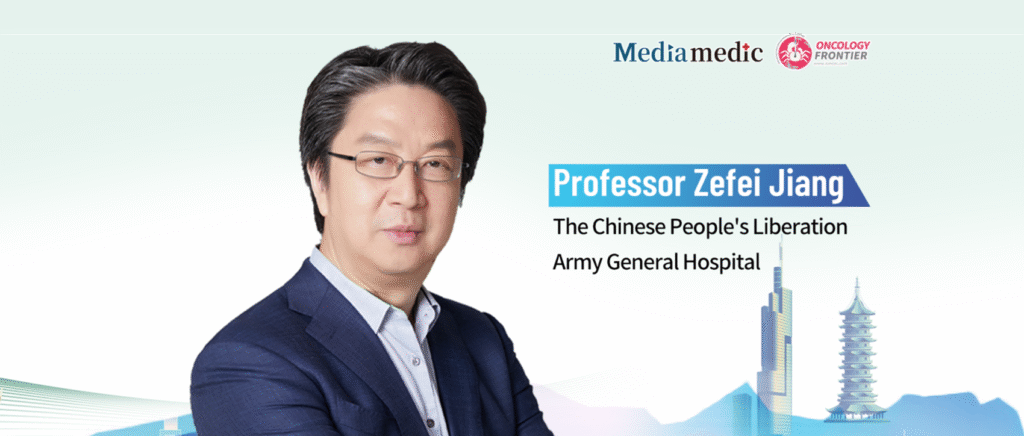
2025 BOC/BOA to Open on July 4th!
Editor’s Note: The 2025 Annual Meeting of the Chinese Society of Clinical Oncology (BOC), held in conjunction with Best of ASCO® 2025 China (BOC/BOA), will take place in Nanjing from July 4–5. The event will bring together leading oncologists from China and abroad to review China’s recent progress in clinical oncology and to share cutting-edge insights from the 2025 ASCO Annual Meeting. As the event also marks the 10th anniversary of the Annual Research Progress in Chinese Clinical Oncology, Oncology Frontier invited Professor Zefei Jiang—President-Elect of CSCO and a member of the BOC/BOA organizing committee—to preview the upcoming highlights and reflect on the remarkable journey of the BOC/BOA meetings. Join us in celebrating this milestone as China’s academic voice continues to gain global influence and lead innovation on the international stage.From BOA to BOC/BOA:
Chinese Scholars on the Global Stage
Oncology Frontier: BOC/BOA 2025 is just around the corner. Over the years, you’ve witnessed its development. What are your expectations for this year’s meeting?
Prof. Zefei Jiang: First, I’d like to thank Oncology Frontier and other media outlets for their continued support of CSCO’s academic initiatives. In the early days, this event was known simply as “Best of ASCO,” largely because relatively few Chinese oncologists attended ASCO in person at the time. Our goal was to have those who did attend share key findings upon returning to China. We also invited international experts to interpret and discuss ASCO highlights. Back then, just having the opportunity to attend the BOA meeting was very exciting.
As more and more Chinese scholars began to shine on the international stage, CSCO leadership proposed that we shouldn’t only highlight the Best of ASCO, but also showcase the Best of CSCO. We wanted to review the academic accomplishments of Chinese experts not only at ASCO but also at other leading conferences such as ESMO, SGBCC, WCLC, and IGCC. That vision gave rise to today’s BOC/BOA format.
I’m thrilled that BOC/BOA 2025 will be held in Nanjing this July, where we’ll share the latest global updates and present the growing impact of Chinese scholars in oncology.
From Global to Local:
Key Advances in Breast Cancer at BOC/BOA
Oncology Frontier: This year’s breast cancer session at BOC/BOA includes many exciting updates. Could you share some key highlights?
Prof. Zefei Jiang: At BOC/BOA, we’ll be covering major international breakthroughs—such as the DESTINY-Breast09 trial on HER2-targeted antibody-drug conjugates (ADCs), and the latest findings from ASCENT-04 on immunotherapy combined with Trop-2 ADCs. At the same time, it’s encouraging to see Chinese-led research gaining international attention.
For example, the DAWNA-A study led by Fudan University Cancer Hospital has made headlines, and Professor Zhimin Shao’s team will provide an in-depth interpretation of this research. I believe presenting in English on the international stage is one kind of experience, but sharing those same results back home, in Chinese, with our own community, is just as important. We’ll also invite respected domestic experts to offer their insights and commentary on these developments.
From Foundation to Leadership:
Celebrating 10 Years of Annual Research Progress in Chinese Clinical Oncology
Oncology Frontier: We’re also celebrating the 10th anniversary of Annual Research Progress in Chinese Clinical Oncology at this year’s meeting. What impact has this publication had over the past decade on breast cancer research and Chinese oncology as a whole?
Prof. Zefei Jiang: One of the goals of BOC is to systematically review and highlight the contributions of Chinese researchers. I was fortunate to have overseen the editorial work for Annual Research Progress during my tenure as CSCO Secretary-General, under the guidance and support of our leadership.
In the early years, it might have taken three to five years for a single Chinese-authored study to be published in NEJM. An impact factor of 30 was often enough to make it into the top three achievements of the year. But now, during the evaluation process, we’ve seen entire subfields publish five NEJM articles in a single year. Even studies with an impact factor of 90 might not rank in the top three. I remember one year there were ten papers with an impact factor above 82.9.
This reflects a remarkable surge in original research output from Chinese scholars. As a result, the Annual Research Progress publication has become increasingly vital, continually pushing the frontiers of global oncology. We invite CSCO experts to review and interpret the research and bring in seasoned professionals to provide commentary. This exchange fosters collective learning, clinical insight, and interdisciplinary thinking.
Looking ahead, I hope BOC continues to grow in scope and depth, showcasing not only China’s academic achievements but also the broader development of our oncology field.

